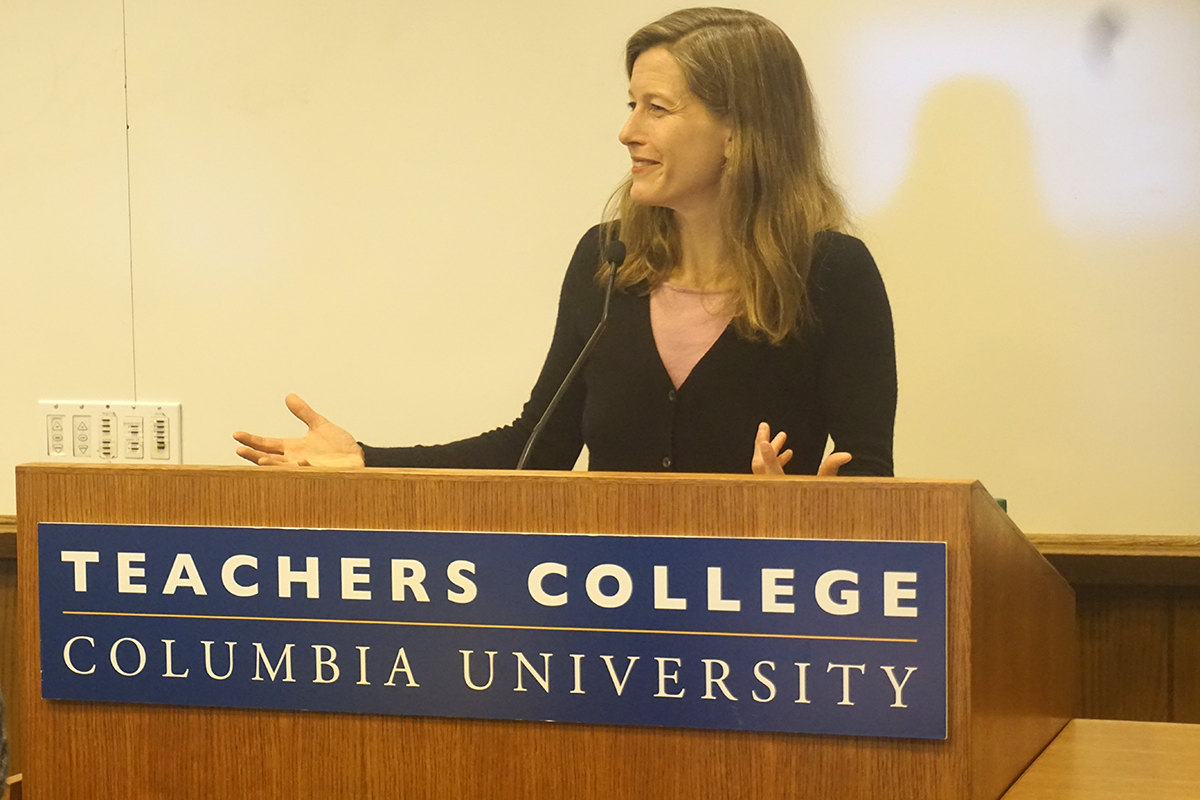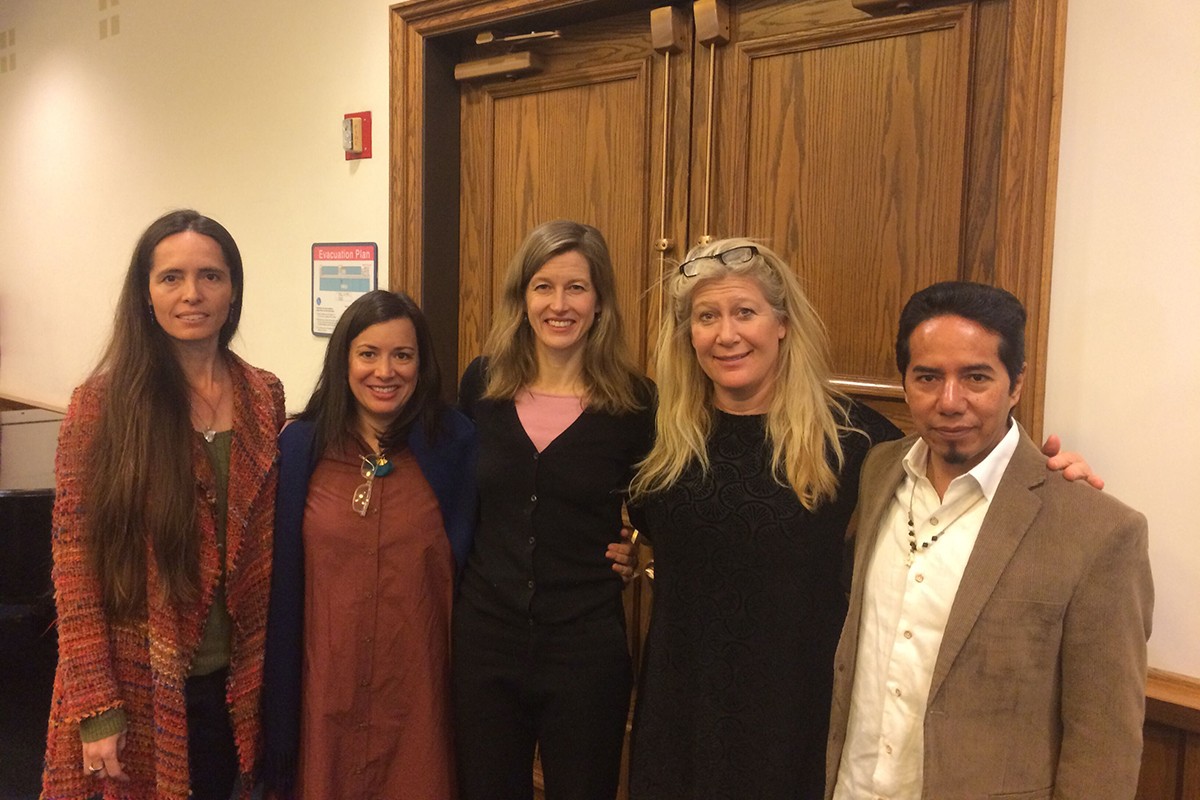It seems fair to say that Karenna Gore knows as well as anyone that elective politics can be arduous, gridlocked and ultimately disappointing. Also that she’s got a bit of a family connection to the issue of climate change.
So Gore’s current job, directing a nonprofit called The Center for Earth Ethics, isn’t surprising. That the Center is based at Union Theological Seminary, however, bears more reflection.
“I actually never intended to work in climate change,” Gore, who toiled for her father’s campaign in the contested 2000 presidential election, told a rapt audience during a talk she gave at Teachers College’s Spirituality Mind Body Institute Winter Intensive in January. But the year she started work at Union – initially directing its Forum conference and lecture series – the United Nations held a summit on climate at which then Secretary-General Ban Ki Moon, lamenting the inability of governments to act, called on civil society to mobilize on the issue. Gore, who had earned a master’s degree at Union in 2013, realized that interfaith dialogue could tap a powerful source of motivation – particularly if it reached beyond the typical focus on just Christianity, Judaism and Islam – and convened her own “Religions for the Earth” conference at Union.
Humanity has to reorient itself toward nature, and many indigenous ceremonies occur in a natural setting. Yet these faiths are often disrespected, which says a lot about why we’re at this pass with the environment.”
— Karenna Gore
“Humanity has to reorient itself toward nature, and many indigenous ceremonies occur in a natural setting,” she said. “Yet these faiths are often disrespected, which says a lot about why we’re at this pass with the environment.”
Gore quoted the late theologian and civil rights advocate Howard Thurman’s observation that “One of the deceptive aspects of mind in man is to give him the illusion of being distinct from and over against but not a part of nature,” and that this conceit enables him not only to exploit the natural environment but “plunder it, and rape it with impunity,” becoming “more and more… alien on the earth and fouler of his own nest.”
Citing a 1967 paper by the Princeton historian Lynn Townsend White, “The Roots of Our Ecological Crisis,” Gore said that the victory of Christianity over paganism was a critical turning point in humanity’s co-existence with nature.

UNEXPECTED PATH Gore didn't plan to work in climate change, but the UN's call to the civil sector changed her thinking.
“You value what you’re taught to notice and relate to,” she said. “People had been taught to greet the sunrise at a river. And then in the Middle Ages that’s banned and called satanic. The relationship to nature is broken, at the same time as the rise of mercantilism.”
The Vatican subsequently empowered Christian European explorers to vanquish and subdue native peoples, Gore said, reflecting the view that some human beings are subjects and everything else is an object. The slave trade reflected the same mentality, she said and so does America’s current obsession with constant economic growth and the Gross Domestic Product (GDP) as the ultimate measure of our society’s success.
“Robert F. Kennedy once said that GDP measures everything in life except everything of real value,” Gore said, including the depletion of natural resources, the comfort and happiness of most people, and work in the home, which has not been monetized and is almost exclusively performed by women.
We need to seek other measures, like Bhutan’s happiness index, to change the conversation,. If we don’t, we’ll be up against the same thing with each discussion of pipelines and the opening up of the Amazon rain forest.”
— Karenna Gore
“We need to seek other measures, like Bhutan’s happiness index, to change the conversation,” Gore said. “If we don’t, we’ll be up against the same thing with each discussion of pipelines and the opening up of the Amazon rain forest.”
Gore concluded with the assertion that “eco-ministry is the great hope of our time.” That work includes civic actions such as the 2016 Dakota Access Pipeline Protests that arose against plans to run an oil pipeline through the Standing Rock reservation.
“There is racism in the placement of toxic facilities – they often go where ‘people don’t count,’” she said. Standing Rock was “a great coming together of protectors, not protesters – an example of how environmental justice and civic engagement are calling us to the front lines.” – Joe Levine
The Winter Intensive is part of the SMBI master’s program, which includes 10 days in the summer and four in the winter. The intensive offers a blended learning format, with students of all ages flying to TC from around the world. Click here to learn more.
